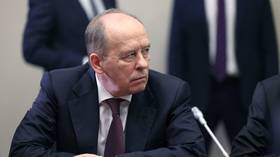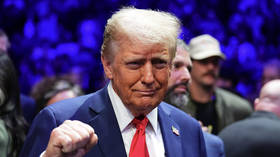Nervous Poland backs U.S. missile shield
U.S. president-elect Barack Obama faces many challenges when he takes office in January. Among them is the planned missile defence system in East Europe, opposed by Russia. Poland and the Czech Republic have signed deals to host elements of the system, b
After protracted negotiations, Warsaw and the U.S. signed a deal to locate part of the project on Polish soil back in August.
The great unknown is whether incoming U.S. president Barack Obama will simply take over where George Bush left off, or drop the plan altogether.
He has hinted that he may review the project when he takes the reins of power, but there has been no indication so far that he intends to scrap it.
Polish diplomats are hoping that’s not the case.
Polish MP Pawel Gras, a member of the Defence and Intelligence Committee, said it was in Poland’s “national interest to have close cooperation with NATO, the EU and the U.S.”
He added that the “defence system would be able to protect Europe and us from Iran.” Gras added that Poland was “happy to be part of the defence system.”
It’s a view shared by the majority in the polish parliament, which plans to ratify the agreement in the coming months.
But what’s good for Poland isn’t necessarily good for Russia. And Moscow feels the proposed anti-missile shield is a direct threat to Russia’s defences.
The U.S. says the planned defence system in Poland and the Czech Republic is directed at so-called 'rogue states' like Iran. But Russia fears missiles could be directed against them.
In response to this threat, President Dmitry Medvedev has floated the idea of deploying additional missiles at a base in Russia’s western enclave of Kaliningrad.
It's a move which comes as little surprise to lecturer Filip Ilkowksy, who heads the Stop the War movement in Poland.
He’s against the missle defence system and argues that rather than protecting Poland, the shield will put it in more danger.
He said that the Georgian war had demonstrated many things, particularly that “the U.S. is not keen to help allies when under attack.”
“Georgia was hoping for some help; only words came, so don’t think we should believe Poland will be so safe because its so close to the U.S.” Ilkowsky said.












